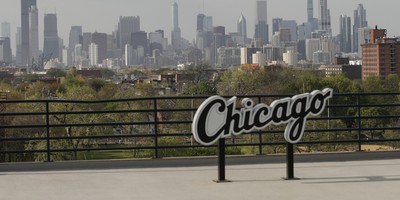WASHINGTON - When the then-spreading Ebola virus threatened our nation last week, President Obama put one man in charge of coordinating the government's response who had zero experience in handling infectious diseases.
While it appears the Ebola threat may be receding here at home, the longtime Democratic political fixer he chose to oversee the government's handling of a deadly disease is an outrageous example of the kind of people he has put into key positions in his administration.
This was a high-level job for a prominent, experienced take-charge, medical expert with both administrative and executive credentials. But the president chose Ron Klain, a loyal Democratic operative whose background has been in legal work and party politics.
He played major role in one of Obama's worst spending scandals: The waste-ridden "green investments" program that poured hundreds of millions of tax dollars into dubious energy companies that went bankrupt. More on this in a moment.
The longtime Washington lawyer served as chief of staff for Vice President Joe Biden and, before that, for then-vice president Al Gore. He was also a top attorney on Al Gore's Florida recount committee in the disputed 2000 electionAs Biden's chief of staff, Klain had a hand in overseeing Obama's $800 billion job stimulus program. And we know how badly that turned out: a costly, big government failure that had little if any longterm impact on the nation's sky-high unemployment rate.
He also worked in a number of Democratic presidential campaigns, including Gore's presidential race in 2000 and John Kerry's White House bid in 2004.
This was a party loyalist pure and simple, utterly without any medical or health care qualifications for someone who is put in charge of preventing the deadly Ebola virus from spreading to the rest of the country.
Recommended
Democrats in Congress praised Obama's choice. But Republicans expressed shock and dismay at his decision put someone in charge who had no credentials for the job.
One of the GOP leaders who questioned Obama's poor judgement was House Foreign Affairs Committee Chairman Edward R. Royce of California.
"I have to ask why the president didn't pick an individual with noteworthy infectious disease or public health background?" Royce said in a statement last week.
But Obama wasn't looking for someone outside of the administration who would be an independent figure in the then-emerging Ebola crisis. He wanted a time-tested loyal Democrat who could handle the politics of the situation as well as the administrative side.
The president had just gone through an embarrassing period with the release of former Defense Secretary Leon Panetta's blockbuster, tell-all book that said Obama had bungled the war on terrorism in Iraq and Syria and had a hard time making crucial national security decisions.
The White House wanted someone who would protect the president in the handling of what appeared then to be a chaotic situation in which no major administration figure was in charge -- least of all Obama.
Biden lobbied for his former top aide, who had proven himself as a hardened political loyalist first and foremost in the rough and tumble of governing as a political trouble-shooter. He got the job and the early controversy over his selection seems to have receded.
Lost in all of this, however, was Klain's role in dealing with Obama's problem-plagued clean energy projects that were supposed to create thousands of new jobs.
One of them was the $535 million loan guarantee to the now-bankrupt solar panel company Solyndra. The deal was on its way to approval, despite numerous reports from both outsiders and government officials that the business was on shaky ground and a risky investment.
Much of the criticism for Solyndra came from the Office of Management and Budget where one key official said in an e-mail that the Department of Energy was "completely oblivious" about the company's financial troubles, warning the White House that "bad days are coming."
But the political skids were greased for the project in 2010 and Obama planned to tour the plant to promote his jobs program as a huge success.
Still, the warnings continued. A former California state controller wrote to Obama senior adviser Valerie Jarrett in May 2010, voicing concerns that this was not a viable firm. "I just want to protect the president from anything that could result in negative or unfair press," he said.
Jarrett, one of the president's closest aides, relayed the message to Klain, saying "We clearly need to make sure that they are stable and solid."
Klain checked further with DOE officials who insisted the company was "strong," but with this troubling warning: "…the company is okay in the medium term, but will need some help of one kind or another down the road."Nevertheless, despite all of these doubts, Klain gave the project and Obama's visit a qualified green light the day before the president toured the plant.
"It sounds like there are some risk factors here -- but that's true of any innovative company that POTUS would visit," Klain wrote on May 24, 2010," according to a USA Today story in 2011.
"It looks like it is OK to me, but if you feel otherwise, let me know," he added.
Then, in a defensive, follow-up e-mail to Jarrett later that day, he added, "The reality is that if POTUS visited 10 such places over the next 10 months, probably a few will be belly-up by election day 2012."
In the end, Obama dismissed Solyndra's bankruptcy and the loss of 1,100 jobs, saying, "Hindsight is always 20-20. People felt like it was a good bet." Well, not exactly everybody.
There were many more bad bets in a long line of grants and loans that followed. The taxpayers are footing the bill for those gambling debts, too.
Which leads to this question: What if Klain's judgment on future issues dealing with Ebola turn out to be just like his costly misjudgment on Solyndra?

























Join the conversation as a VIP Member